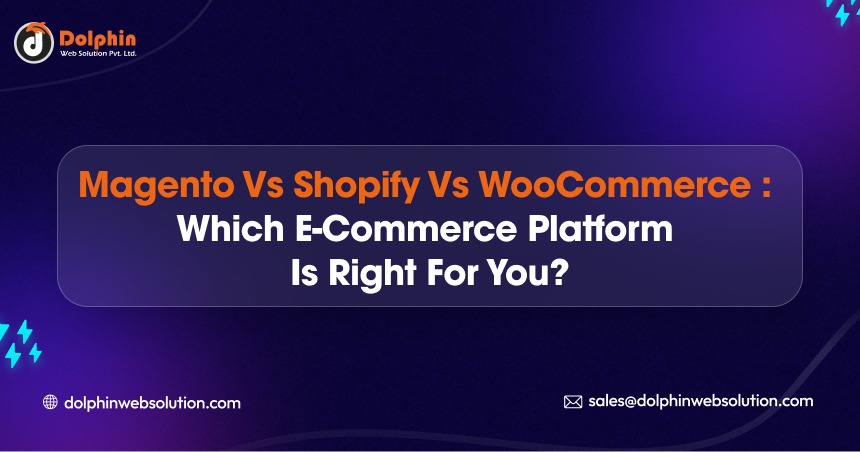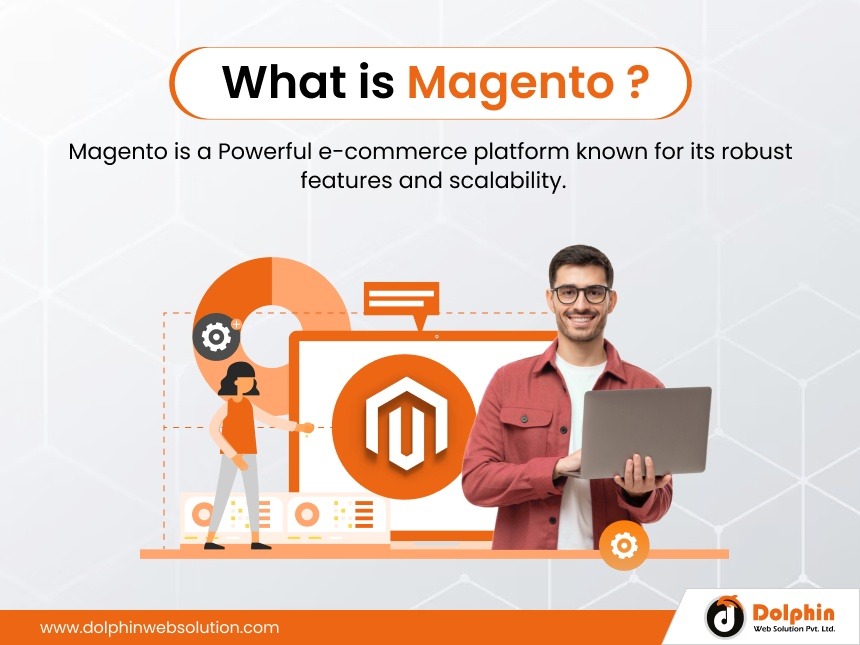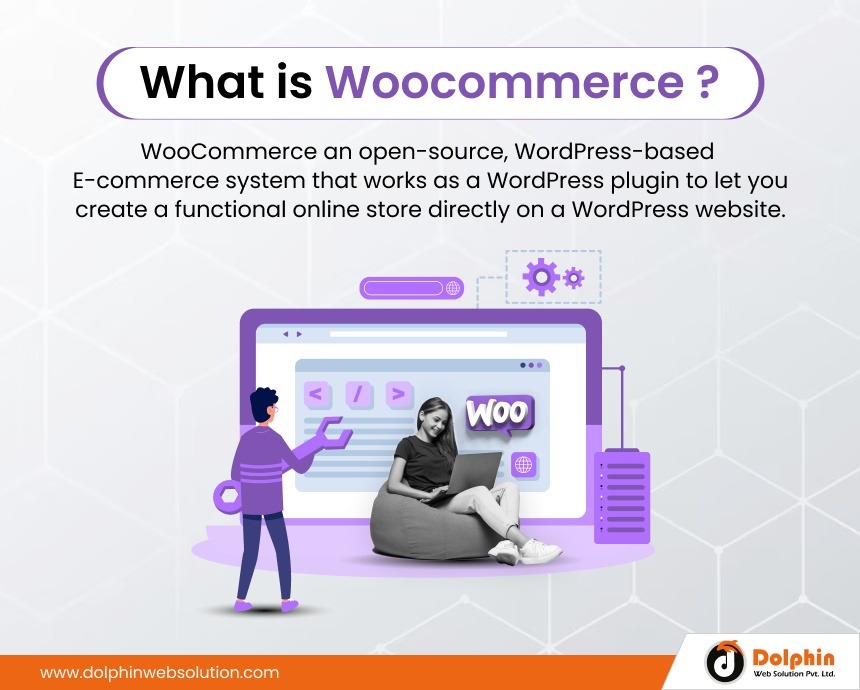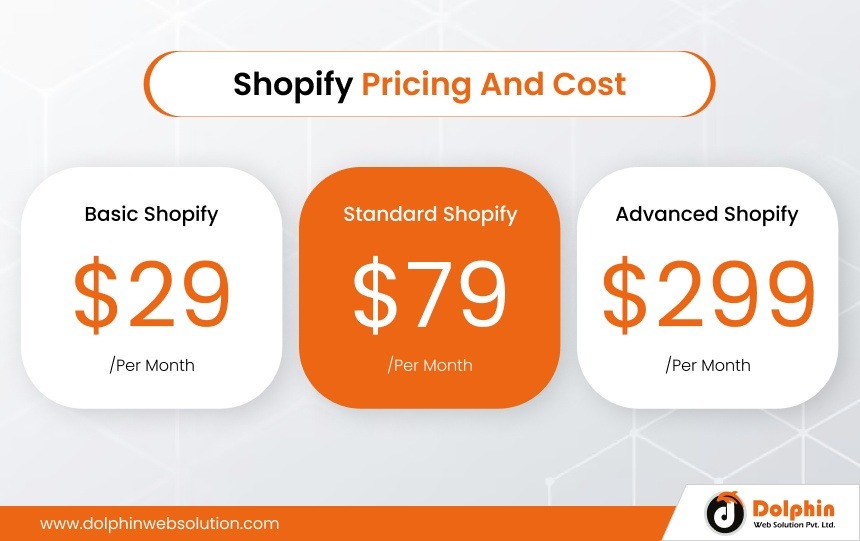Magento vs Shopify vs WooCommerce: Which E-commerce Platform is Right for You?

Table of Contents
Summary :
Selecting the perfect e-commerce platform mostly depends on your requirements and choices, but overall in terms of small companies, Shopify is the best option, and Magento is the perfect option for large-sized businesses. WooCommerce, the most newly launched platform, is suitable for medium-sized businesses. Rest all the choices, majorly depend on the size, cost, resource requirements, etc.
Choosing the right e-commerce platform is a tough choice, especially when you have options like Magento, Shopify, and WooCommerce. Each platform offers unique features and benefits tailored to different business needs and preferences.
Magento is renowned for its robust customization options and scalability, making it ideal for large enterprises. Shopify, on the other hand, is favored for its user-friendly interface and comprehensive support services, making it suitable for beginners and small businesses. WooCommerce, as a plugin for WordPress, combines the flexibility of open-source software with the familiarity of WordPress, appealing to businesses seeking customization and control.
In this article, we’ll be learning in detail about each of them along with their positives and negatives, with the comparison criteria for each.
Overview of Magento

Magento is a powerful e-commerce platform known for its robust features and scalability. It offers extensive customization options, allowing businesses to create unique online stores tailored to their specific needs. Magento Development provides advanced functionalities for managing inventory, processing orders, and optimizing the user experience.
Pros
- Extensive and Flexible Customization Options
- Scalable for large enterprises
- Advanced inventory management
- Comprehensive features for optimizing user experience
Cons
- Higher development and maintenance costs
- Requires technical expertise for customization
- Bulk resources required for hosting management
Overview of Shopify

Shopify is one of the top e-commerce startups globally. It’s well-known as the greatest all-in-one e-commerce platform that lets you create an online store, manage your inventory, and take orders from a single interface. The best features of Shopify are that it’s easy to use, doesn’t require you to purchase a CDN or SSL, comes with themes, and provides communities and support.
Pros
- User-friendly interface with easy-to-use functions
- Comprehensive support services
- Extensive app store for additional functionalities
- Secure hosting and reliable uptime
Cons
- Limited customization options compared to other platforms
- Extra transaction fees for some platforms
- Dependency on third-party apps for advanced features
- Less suitable for complex e-commerce needs
Overview of WooCommerce

WooCommerce is the most widely used and effective e-commerce platform on the planet. It’s an open-source, WordPress-based e-commerce system that works as a WordPress plugin to let you create a functional online store directly on a WordPress website.
Pros
- Free and open-source platform
- Extensive customization options through plugins and themes
- Seamless integration with WordPress websites
- Strong community support
Cons
- Additional costs for premium plugins and themes
- Security and performance depend on website hosting
- Technical proficiency is required for setup and customization
Head-to-Head Comparison Of Magneto, Shopify and Woocommerce
1. Magento Vs Shopify Vs Woocommerce Pricing and Costs
Magento Pricing and Cost
offers two pricing plans namely, Community and Enterprise.
- The community version is free to download and use.
- Enterprise plan is suited for medium to large-sized businesses, and the final cost depends on the size of the company.
Shopify Pricing and Cost

Shopify offers a total of three paid plans:
- Basic Shopify: $29 per month
- Standard Shopify: $79 per month
- Advanced Shopify: $299 per month
Note: A free trial is available for 14 days to understand it completely without providing any financial details.
WooCommerce Pricing and Cost
WooCommerce is completely free of cost and can be downloaded from the WordPress website. Apart from that, a domain name, an SSL certificate, or website hosting needs to be purchased.
2. Magento Vs Shopify Vs Woocommerce Security
Magento Security
The first e-commerce platform to give data safety top priority was Magento. It has outstanding processing power for security and performance.
Shopify Security
Like all other top-tier e-commerce platforms, Shopify is extremely safe. Most merchants consider it to be the most dependable e-commerce platform.
WooCommerce Security
Impressive security features are offered by the WooCommerce platform to protect merchant data and other sensitive information.
3. Magento Vs Shopify Vs Woocommerce Customization Options
Magento Customization Options
Magento offers an extensive range of themes and templates for design customization along with access to a wide range of plugins and extensions for additional functionalities. It offers the ability to customize code for highly focused solutions and support for multiple storefronts and languages.
Shopify Customization Options
Shopify has customizable themes with varying styles and features. Along with that, it offers easy storefronts and checkout processes with access to Shopify’s Liquid programming language for advanced customization. They too have integration with third-party tools and services for enhanced functionality.
WooCommerce Customization Options
In WooCommerce, several themes and plugins are available for design and functionality customization along with the support for custom coding and development for unique features. There are multiple built-in tools for managing products, inventory, and customer relationships.
4. Magento Vs Shopify Vs WoocommerceEase of Use
Magento Ease of Use
Magento is a challenging platform that doesn’t offer on-site developers to assist you with website development. It is advised for those who understand web programming at least somewhat; otherwise, you will need to employ a specialist.
Shopify Ease of Use
To get started, Shopify doesn’t require any prior coding or website-building skills. Shopify offers the smoothest user experience, enabling retailers to offer top-notch customer service to their customers.
WooCommerce Ease of Use
Based on the simple knowledge of WordPress, you can easily manage the WooCommerce platform along with all the functions.
5. Magento Vs Shopify Vs WoocommerceFeatures and Functionality
Magento Features & Functionality
Magento excels in advanced catalog management, supporting configurable products, bundles, and virtual items. Flexible pricing options, including discounts and coupons, cater to diverse business needs. Built-in SEO tools optimize product pages, improving search engine rankings for enhanced visibility and sales performance.
Shopify Features & Functionality
Shopify has a user-friendly interface with drag-and-drop functionality, simplifying website customization. Integrated payment processing supports multiple gateways, ensuring seamless transactions. Additionally, built-in marketing tools such as email marketing, social media integration, and abandoned cart recovery enhance customer engagement and retention.
WooCommerce Features & Functionality
WooCommerce has a built-in blogging platform for content marketing and SEO optimization along with easy WordPress customization for website editing. It allows for flexible shipping options with support for flat rates, free shipping, and real-time carrier rates.
Magento Vs Shopify Vs WoocommerceSEO and Marketing
Magento SEO and Marketing
Magento offers customizable URLs and meta tags for optimizing individual product pages along with built-in SEO features such as XML sitemaps and canonical tags. It supports Google Analytics and other third-party tracking tools.
Shopify SEO and Marketing
With Shopify, you can prepare an SEO-friendly website structure with customizable meta tags and URLs. It also offers a built-in blogging platform for content marketing and SEO optimization, with access to built-in analytics tools for tracking website traffic and customer behavior.
WooCommerce SEO and Marketing
WooCommerce offers seamless integration with WordPress for blogging and content marketing along with built-in SEO features such as customizable URLs, meta tags, and XML sitemaps. It provides access to a wide range of WordPress plugins for SEO optimization, social media integration, and email marketing. Also offers to integrate with popular marketing tools like Mailchimp, HubSpot, and Google Analytics.
Conclusion
The final decision between WooCommerce, Shopify, and Magento is based on your unique business requirements and preferences. Because of its flexibility and wide range of customization options, Magento is perfect for large businesses. Shopify’s comprehensive support services and user-friendly design make it an ideal choice for novices and small enterprises. WooCommerce appeals to people looking for control and customization because of its versatility and smooth WordPress integration.
Whichever platform best suits your e-commerce objectives will depend on several factors, including your budget, level of technical expertise, and desired features. You may also opt for Website Development Services from Dolphin Web Solutions to elevate your process and make it more efficient.

Hello!
Click one of our contacts below to chat on WhatsApp


